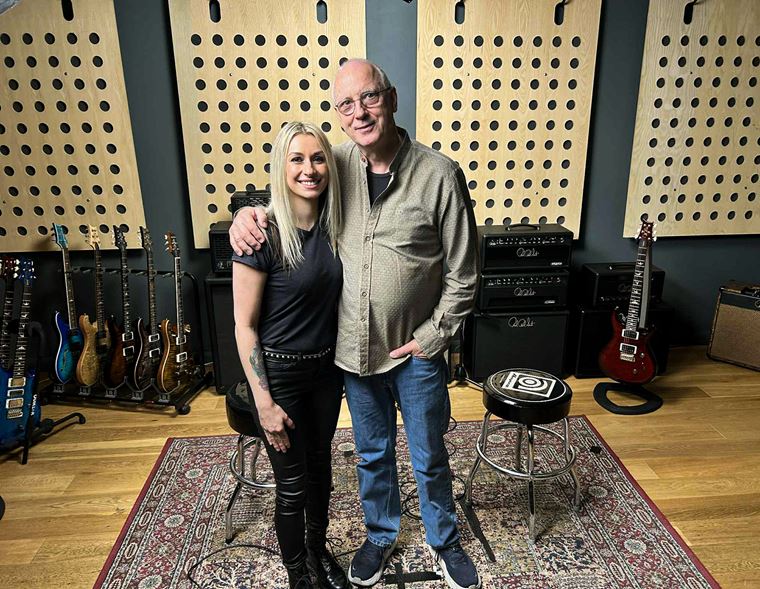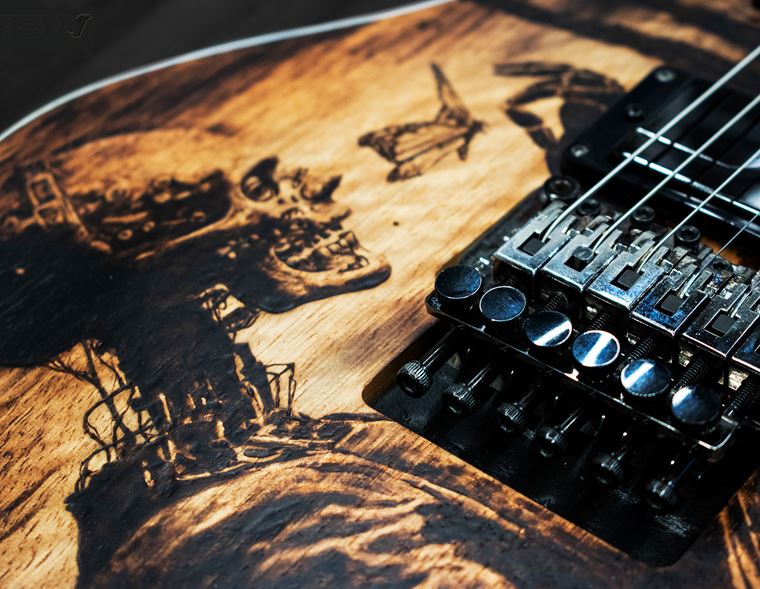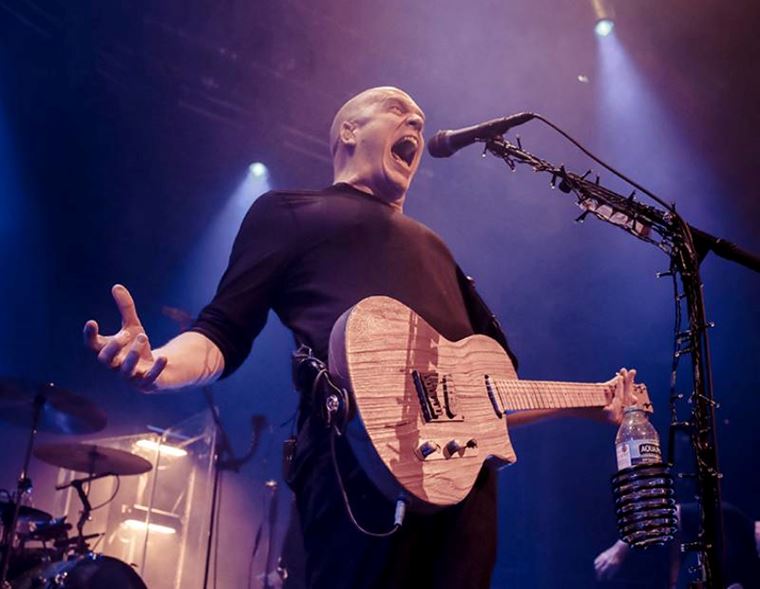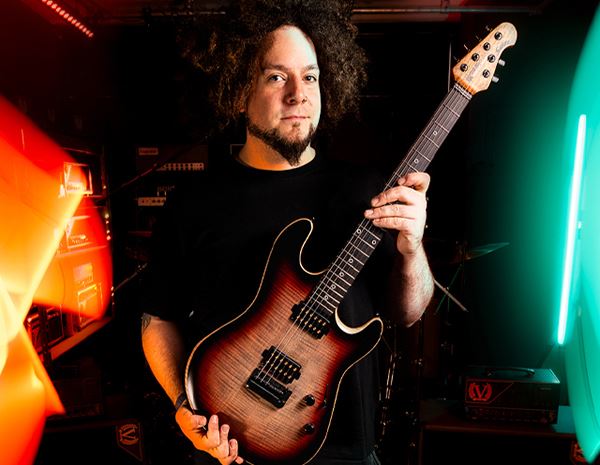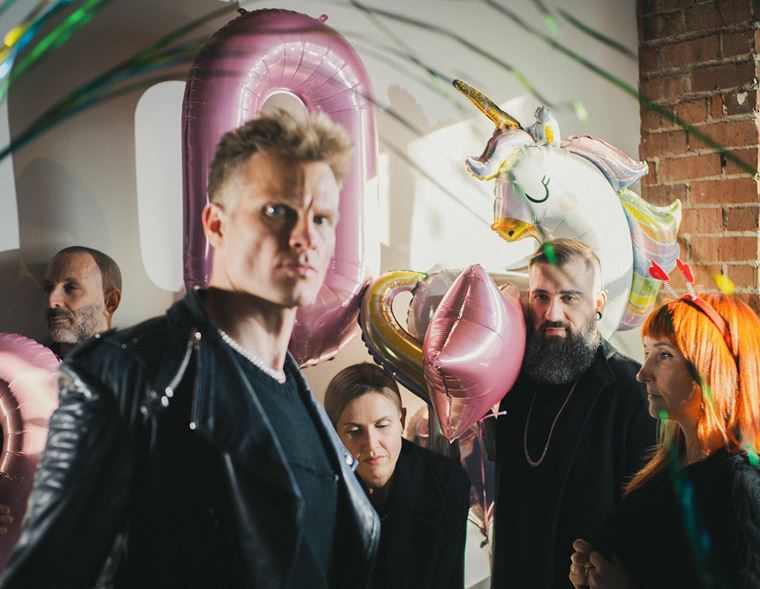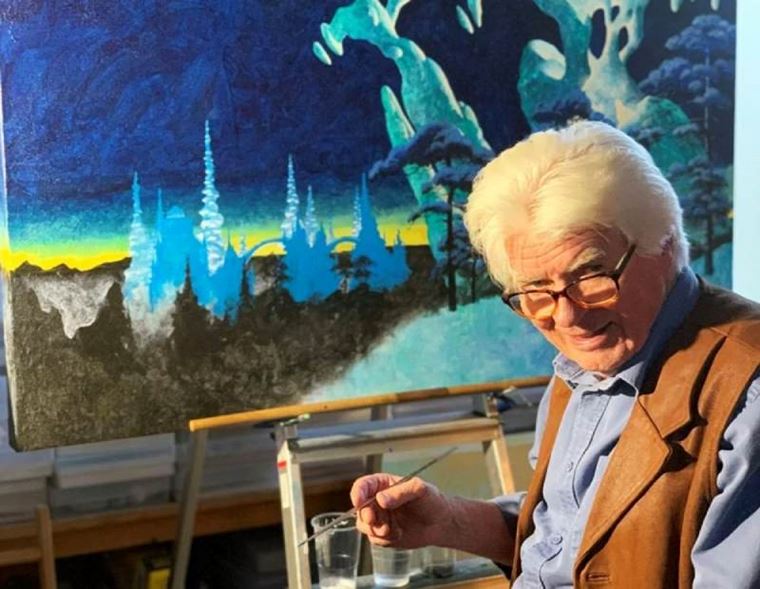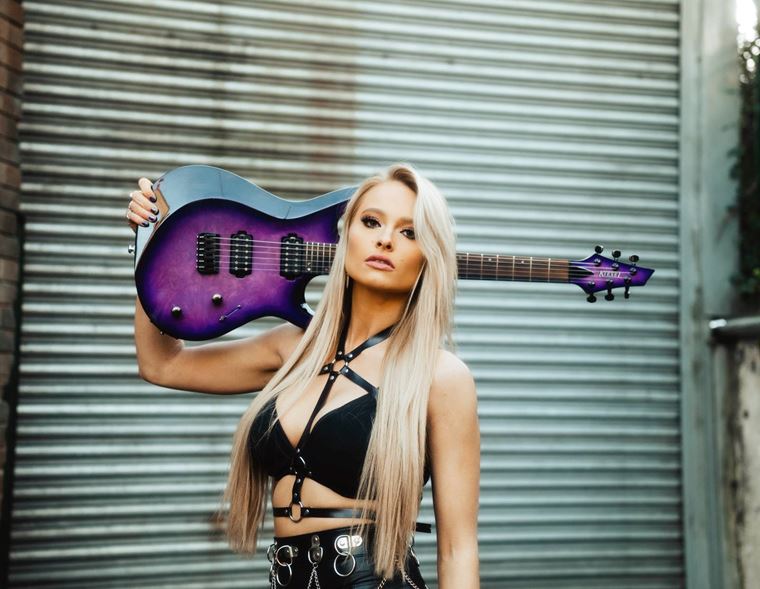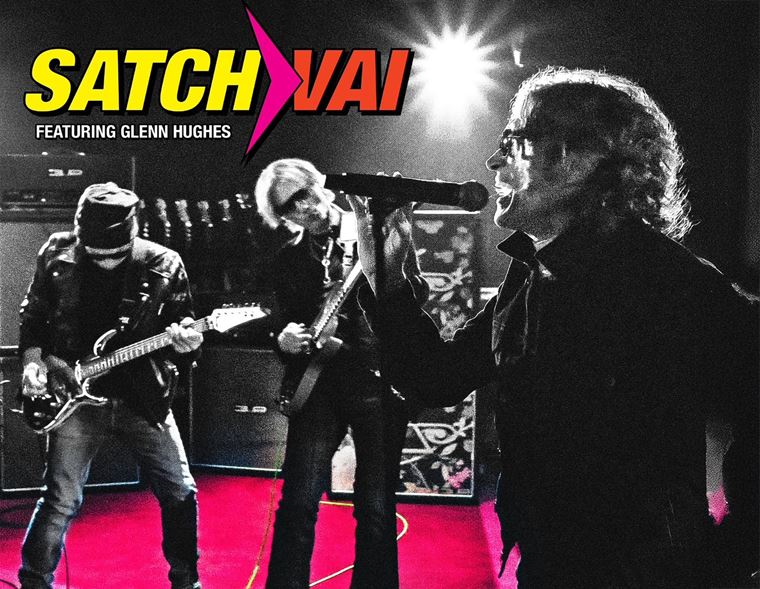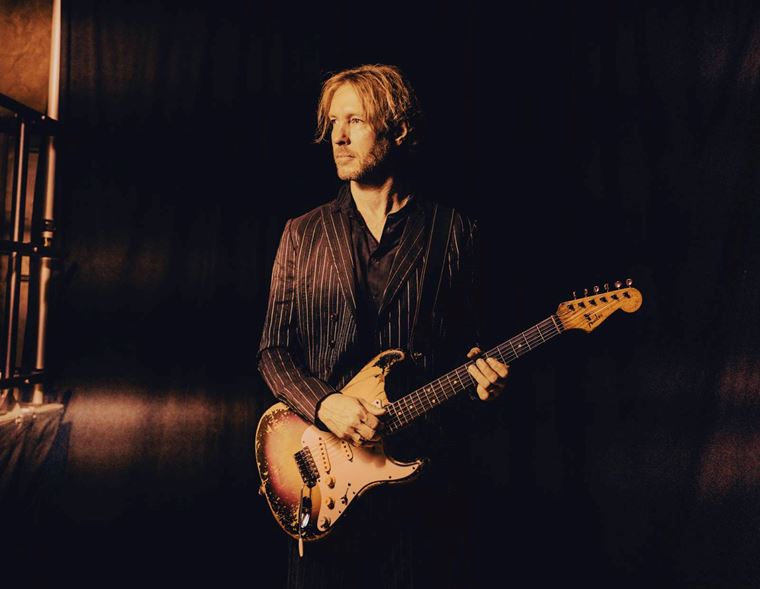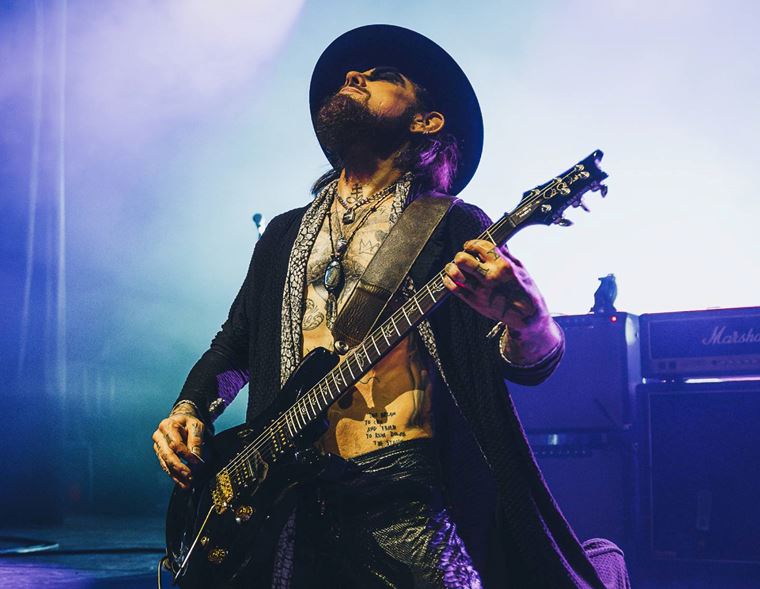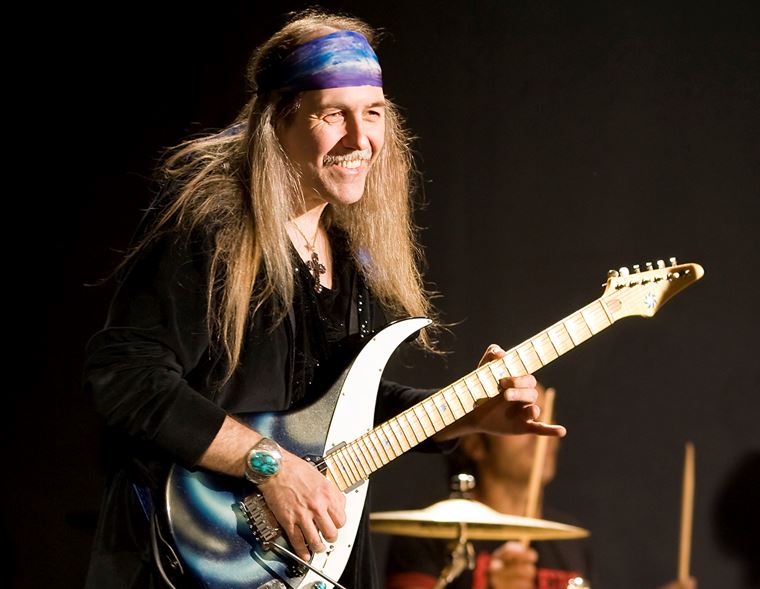The guitarguitar Interview: Jayce Lewis
Jayce Lewis has, for the last decade, been a forward-thinking force in modern British music. Setting his sights defiantly on a futuristic horizon, this multi-instrumental singer songwriter and producer has crafted three albums of beautifully constructed, exciting electro-rock, with another on the way very soon.
Hailing from Bridgend in South Wales, Jayce has built an international career, collaborating with top callibre artists like Gary Numan, Brian May and Roger Taylor. The BBC has made a documentary on him, Darth Vader himself was his manager and mentor and he has also built himself a high-grade studio, Northstone Studios, in South Wales.
On the eve of his new 4th album release and UK tour, we thought it was high time to have a chat with this thoroughly interesting man. Jayce was happy to oblige...
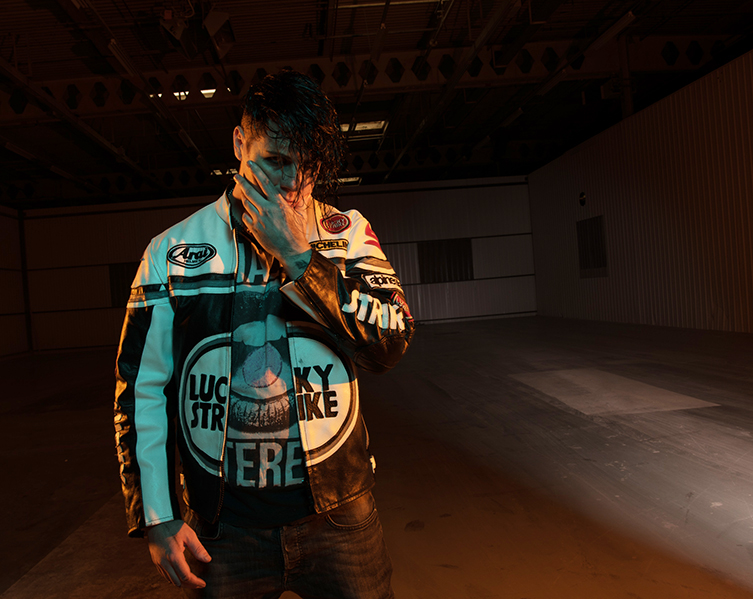
(Photo by Scott Chalmers)
Jayce, thanks for agreeing to speak with us! Now, you are touring the UK later this month but let’s start at the start with how your career began. Your first single was ‘Icon’ back in 2009: were you making music in bands before that?
I was yes, I was in two bands before then as a drummer… one was called Noquenda, the other was called Losing Sun. Losing Sun for me... was a promising act that ended in disaster. We had toured so much, and gave it everything but I was also doing all the management work which took its toll on me in the end… I was glad it was over, as it gave birth to my solo career, and I haven’t looked back since.
How did you come to get signed with EMI back then?
I was spotted by a new A&R guy for EMI Asia called Anand, he had a big vision for the project, which later merged into EMI Music UK. It was an incredible era for me... and my feet didn’t touch the ground for many years. So much happened so fast: my first album went top 10 there and the BBC were all over it too, crazy time of my life!
You grew up in Bridgend, South Wales, where you currently both live and work. What part has Bridgend played in forming your artistic outlook and perspective?
Yes, I’m still here….Bridgend is a weirdly beautiful place, beautiful surroundings and incredible places. The only thing that lets it down are a small minority of people around here… if you do well, or mean well, or lead a life that's far removed from their everyday existence… it’s regarded as bullshit, everyone suspects the other, and so for some crazy reason it breeds this false fronted guise. I still cannot get my head around it, it's such a shame, so I keep myself to myself.
Your music has a distinctly sci-fi influence: were you reading and watching sci-fi in your early days? What other things influenced you?
Oh yes, I used to love films such as Ghostbusters, Close Encounters, Terminator 2, Predator... all of those movies I think had a big influence on me, later becoming a fan of Fear Factory in my teens which I think totally opened my mind to the sound I have now.
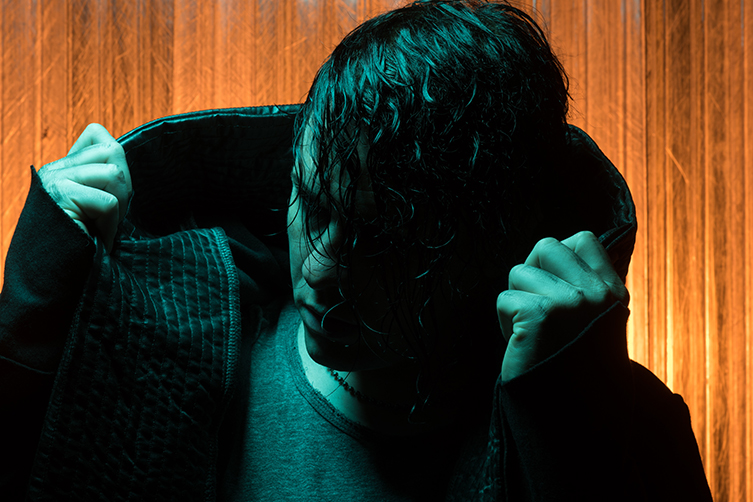
(Photo by Scott Chalmers)
Now, there is a little bit of history between yourself and none other than Darth Vader! Star Wars actor David Prowse has managed you in the past and you’ve even made a documentary about creating Vader’s voice in the studio: can you tell us a little about your relationship with him?
Dave and I are very close, I try to see him about once a month, but we speak weekly on the phone, he has been a big part of my life, and I owe him so much. Just as Dave began to get ill, I wanted to do a little piece for him about his voice, seeing what it would have been like if his voice was actually used as Vader, rounding up the whole character. It was unfair to see some of the on-set footage that’s going around as he was told to shout and put fear into the other cast, whereas James Earl Jones was recorded with a much more relaxed delivery, so I wanted to capture that from Dave.
You play a range of instruments: guitar, bass, drums, keys, programming and vocals: what was the first instrument you began playing?
The very first instrument was actually the guitar, I wanted to be just like Brian May when I was a young child… only some 25 years later I actually worked with him and we did a song called ‘We are one’ on my Million album.
When you are writing, do you tend to go towards one instrument in particular?
I would say I start most things on the guitar, but there are some occasions where I start with a beat in my head… I was a drummer for much longer than I was a guitar player, I cut my teeth in this business as a drummer so at times it’s my main thing.
Your music is a beautiful blend of modern metal, futuristic synth landscapes and accessible, catchy melodies: is this by design or just what comes naturally?
I think it’s what comes naturally… when I come up with some riffs on the guitar, and transpose them in to synths, it gives me some pretty wild ideas vocally: I try not to question it too much, I just go with whatever I feel at the time.
What type of themes do you like to address with your music?
Mainly personal experiences, events or realisations. I am just about to release ‘Million’ (Part 2) which by far has been the most difficult album I have ever had to do. I have just come out of a long term relationship with a girl I was such good friends with prior, she was my best friend later becoming a big part of my life… it brutally ended out of the blue the night before I had to produce/mix and record my vocals, all of which I feel you can hear in the songs. (It was the) hardest time of my life by a long stretch as next month (September) I had planned to propose to her.
That’s terrible, I’m so sorry to hear that. There’s never a perfect time to create art, I guess. Talking about your recent album ‘Million’, though: what is the story behind that title? And when is Million (Part 2) released?
Yeah Million (Part 1) was released October 2017 so was in perfect time for the Gary Numan tour I went on. As I said previously… Million (Part 2) is just about to be released and the full lot will be on a 12” Vinyl. All of which are available on my tour in September…. The word ‘Million’ signifies a singular of many: the word Million is singular, yet its descriptive of a lot… which is what translates boldly about myself in this world.
Your music is very strongly visual: do you also paint or draw?
Yeah, I also paint: I used to paint with acrylics, painted landscapes and horror characters.
You’ve been in the industry for a decade now: how have things changed in terms of record sales and business since then?
The business has changed a huge amount since I entered it professionally in 2008. I think I caught it right at the end of its big change, now all I tend to see is much of the label side, not really knowing what’s a success for them anymore, and bands realising that they don’t need a label. It’s very strange to say the least.
You own and co-run Northstone Studios in Bridgend, which was a derelict building close to a manor house, is that right? You converted it into a high quality recording studio. How did that all come about and how did you manage to make this all happen?
Yeah, Northstone Studios is something I had been planning for some years prior, I was looking for a building that I could purchase and fit out. At the time there were no buildings that caught my eye, until I, for some strange reason did not previously see this derelict building that was right next to the Curry restaurant that I’ve eaten at every week for 14 years! It’s part of the Court Colman Manor. I asked the owner, who is a good friend of mine, and I went for it, building it from the ground up. I set it up to the specs of a studio I would love to record in myself, making it very comforting and cosy. Everything in there is high end and the sound from the place is immense: it has actually exceeded what I initially intended to build! I am very happy with it now.
You are good friends with synth-rock godfather Gary Numan: how did you guys first meet? And how was it touring with him twice?
We met at a Depeche Mode Concert. I’m good friends with Dave Gahan’s brother Phil, who invited me along. Sat right next to me was Gary and his wife Gemma and we started talking… we later went to the after show, and drank, spoke and exchanged details. We have since become really good friends and toured together twice… our music works so well with each other, it’s a perfect match I think.
As well as Gary Numan, you’ve also had Queen’s Roger Taylor appear on your music: just how have you managed to become so well-connected? And how do you go about ‘producing’ a player like Roger Taylor in the studio?
This career has landed me in some of the oddest places, but you do get to meet some amazing people: I met a guy called Josh through a mutual friend of ours Sav, and it all went from there… Josh works with Roger on a daily basis so naturally, once they both heard my song Wrath, it felt very fitting to get Roger on it and he gave it another life of its own.
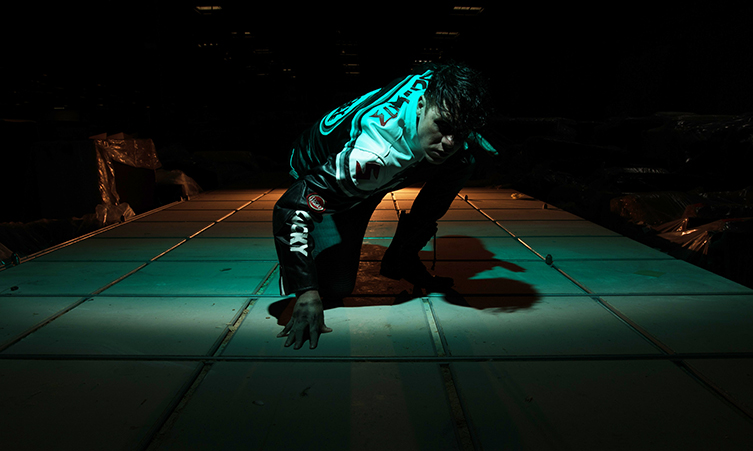
(Photo by Scott Chalmers)
Obviously, you are a fantastic producer as well as songwriter and performer. Are you happiest on stage on in the studio?
I would say in the studio. The truth is on stage I am terrified, which brings out a very strange side of me! It feels as though all the adrenaline and fear creates this other person, that ain’t intimated by anything in the end. It’s very strange!
What is your go-to software in terms of recording and plugins?
For making music its FL Studio all the way. I record using Cubase and Pro Tools. Plugins are mostly all Soundtoys and Waves.
When it comes to drums, do you make your own samples?
I do yes… all the drums you hear on my albums are real of course, then I resample the kit using the original sounds and compress the hell out of them, making them their own sound to enhance the kit.
In terms of guitars, what do you tend to prefer playing?
I am endorsed with Ibanez, and I use all the RG Series… but the one that I use the most is my DN500 Dark Stone… I love that thing. I use gauge 10 Strings and Medium Plectrums.
A lot of your riffs sound quite low-register. Do you play 7 string or baritone guitars?
I use an 8 string… again Ibanez, it’s the RG8S and is quite a beast to play.
Do you use digital modelling software for tracking guitars or do you prefer to do things more traditionally?
Everything is done traditionally.
You take a live band on tour with you: how do you select band members? Do you play to a click track with extra parts triggered on a laptop to help flesh out your grand and widescreen arrangements?
The band members have changed a lot over the years… I discovered to not use anyone from South Wales to be the best thing, and here we have a line-up that I am more than happy with. All the synths are triggered live: Tom the drummer uses a Click track.
You are not a man to go on stage with his jeans and old trainers: how important is image to what you do?
Yeah, I am far from that kind of performer. I believe people go to SEE you play your music live, so image is important, it’s an event!
Jayce, you’ve achieved a lot within the music industry in a relatively short period of time: what advice do you have for other musicians out there looking to carve their own path?
Just stay true to yourself, don’t get too easily influenced by the short term offers and be the better person for recognising them as just that. All in all, don’t forget to enjoy yourself.
And finally, after the tour, what is next for Jayce Lewis?
After the tour I am planning more festival appearances and more shows… will likely do another tour in some of the areas I didn’t do first time round…
Jayce, thank you so much for sharing with us! Good luck with the new album and tour!
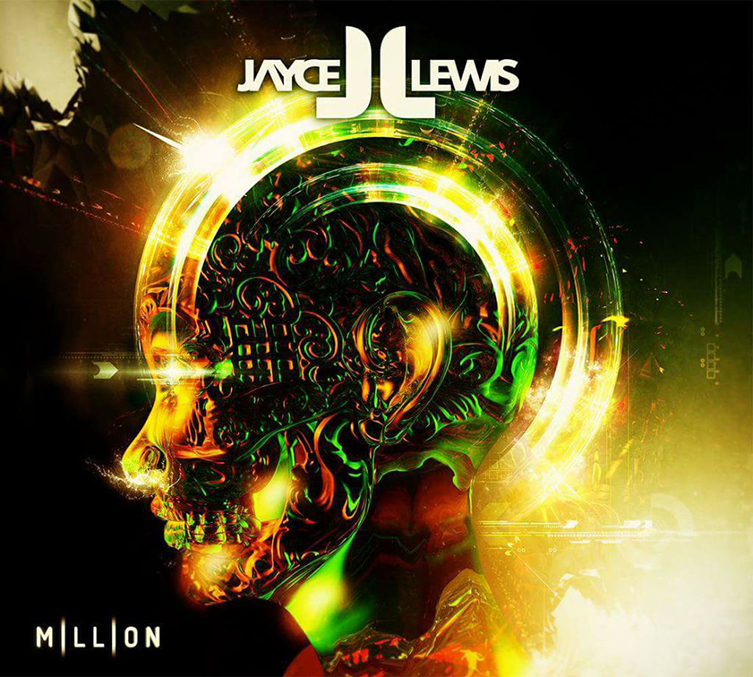
Jayce Lewis' new album Million (part 2) is out very soon and his headline UK tour runs throughout September. For more details, visit his website: https://www.jaycelewis.com/ and follow him on his Facebook page here: https://www.facebook.com/jaycelewisofficial/.
We'd like to thank Jayce and also Scott Eynon from Northstone Studios for helping to set up this interview.


